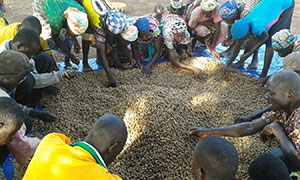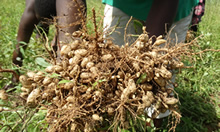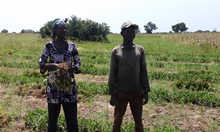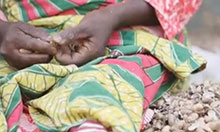
Background
Groundnuts are a major legume crop in the northern regions of Ghana and provide important nutrients for physical development. When handled improperly, however, groundnuts can be toxic to humans. Certain types of molds growing on groundnuts can produce aflatoxins, which can cause immune-system suppression, gastrointestinal dysfunction, growth retardation, liver disease and cancer. Adopting good agronomic practices (GAP) can help make groundnut production safe and reduce the risk of aflatoxin contamination.
As part of SPRING/Ghana’s strategy to promote nutrition-sensitive agriculture practices, the Farmer Field School (FFS) training methodology has been adopted to enhance the understanding and adoption of practices that promote the production and consumption of aflatoxin-safe groundnuts among 1000-day beneficiaries.
This instructional-based training video was developed by SPRING/Ghana as a job aid for agriculture extension agents (AEAs) to engage groundnut farmers in northern Ghana on some selected topics from the FFS training manual.
Overview of the GAP Training Video
The training video provides instructions in two sections: pre-harvest practices and post-harvest practices. The topics treated under the pre-harvest practices are site selection and land preparation, seed selection, germination test, plant spacing, weed control, fertilizer application, timely harvesting and appropriate harvesting techniques. Topics under the post-harvest practices are drying, storage techniques, and processing and utilization of groundnuts.
The video shows instructions and information in a systematic manner, from cultivation to harvesting for the pre-harvest section, and from drying to processing and utilization for the post-harvest section.
The video was mostly filmed in the Northern and Upper East regions of Ghana, with a few snapshots of best practices from other places. It is 13:30 minutes long.
To view the full job aid, please download it above.



